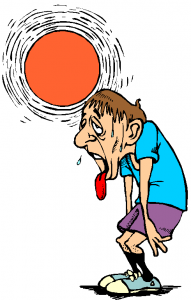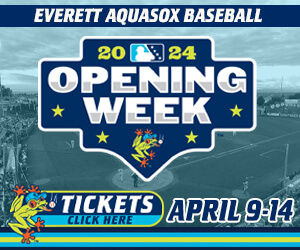Most of these you likely know but here is a good set of information from Snohomish Health to help us get through this heat wave.
. – An excessive heat warning has been issued by the National Weather Service, with temperatures expected to be above 100 degrees on Sunday and Monday throughout the region. The National Weather Service expects that these will be record-breaking temperatures.Experts warn that there will be a high to very high risk of heat-related impacts and illness for much of the population, and especially for those who are heat sensitive and those without effective cooling and/or adequate hydration. Experts also warn that there will be little to no relief from the heat overnight.
The Snohomish Health District and Snohomish County want to share tips to keep cool in hot weather:
- Stay cool indoors. Stay in an air-conditioned place as much as possible. If your home does not have air conditioning, go to the shopping mall or public space with air conditioning. Even a few hours spent in air conditioning can help your body stay cooler when you go back into the heat. Dozens of city facilities, libraries and community organizations have stepped up and offered their spaces as a cooling center. For a full list of cooling centers in Snohomish County, visit www.snohd.org/weather. Bring a mask with you, as many businesses and cooling centers may require masks.
- Don’t rely on fans. Electric fans may provide comfort, but when the temperature is in the high 90s, they will not prevent heat-related illness. In fact, fans may increase heat stress at high temperatures like this. Taking a cool shower or bath or moving to an air-conditioned place is a much better way to cool off. Use cold washcloths on neck or wrists. Close doors of unused rooms and close curtains or blinds to keep heat out. Limit using your stove and oven to maintain a cooler temperature in your home. Avoid hot or heavy meals since they add heat to your body.
- Limit time outdoors. Avoid strenuous activity and try to plan time outdoors when it’s coolest, like morning and evening hours. Rest often in shady areas so that your body has a chance to recover. Avoid the outdoors during the hottest part of the day, which is usually 3-6 p.m., and seek shade in parks and greenspaces where it will be cooler than in paved areas.
- Limit sun exposure. Sunburn affects your body’s ability to cool down and can make you dehydrated. If you must go outdoors, protect yourself from the sun by wearing a wide-brimmed hat, sunglasses, and by putting on sunscreen of SPF 15 or higher 30 minutes prior to going out. Look for sunscreens that say “broad spectrum” or “UVA/UVB protection” on their labels- these products work best. Continue to reapply it according to the package directions.
- Stay hydrated with water. Drink more fluids, regardless of how active you are. Don’t wait until you’re thirsty to drink. Stay away from very sugary or alcoholic drinks since these can actually cause you to lose more body fluid. If you are on a low-salt diet, have diabetes, high blood pressure, or other chronic conditions, talk with your doctor before drinking a sports beverage or taking salt tablets.
- Plan your work and monitor employees. If you are working outside, try to plan strenuous activities for early or late in the day when temperatures are cooler. Take frequent breaks and hydrate regularly. Employers should take steps to protect people who work outdoors, including adjusting work schedules and activities, providing access to water and monitoring workers for illness.
- Help those who are vulnerable or at high risk. Infants and young children, older adults, people with limited mobility, pregnant women and those with pre-existing or chronic conditions can be extra vulnerable to heat illnesses. Make sure they are staying hydrated and keeping cool. Avoid dressing babies and children in heavy clothing or wrapping them in warm blankets. Keep outdoor pets safe in the heat, making sure they have protection from heat and sun and access to cold, fresh water. Asphalt gets very hot and can burn your pet’s paws, walk on grass if possible. NEVER leave a child, disabled adult, or pet unattended in a vehicle. When not in use, lock vehicles so children cannot climb inside and become trapped.
Don’t underestimate the danger of heat, even with short exposure. It’s important to know the signs, symptoms and treatment for heat-related illnesses.
Heat stroke is a medical emergency and you should call 911 if any of these symptoms arise:
- High body temperature of 103 degrees or higher
- Hot, red, dry or damp skin
- Fast, strong pulse
- Headache
- Dizziness
- Nausea
- Confusion
- Loss of consciousness
Heat exhaustion symptoms include:
- Heavy sweating
- Cold, pale, clammy skin
- Fast, weak pulse
- Nausea or vomiting
- Muscle cramps
- Weakness or fatigue
- Dizziness
- Headache
- Fainting
People with heat exhaustion should move to a cool place, hydrate, and reduce temperature with cool cloths or cool bath. Seek medical help if symptoms worsen or last longer than one hour.





June 25, 2021
Everett